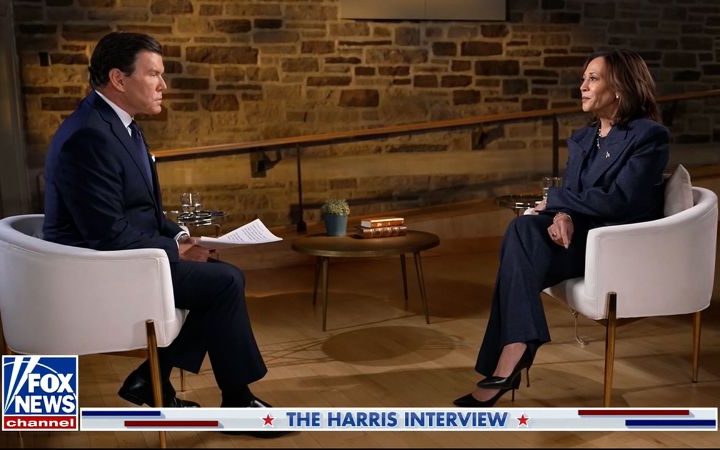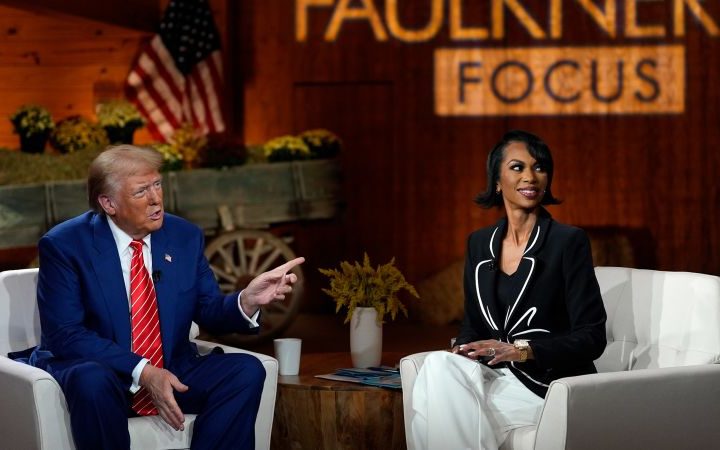The Saturday discovery of the deaths of six hostages has thrown negotiations for a ceasefire and hostage release deal between Israel and Hamas into tumult, with the White House national security adviser saying that “the next few days will be critical” in the push to free those still held by Hamas.
National security adviser Jake Sullivan, in a virtual meeting Sunday, told the families of Americans held hostage that the administration will “work around the clock for a deal to secure the release of the remaining hostages,” according to a readout of the discussion released by the families.
American officials said the deaths of the hostages, who were seized by militants during Hamas’ October 7 attacks, would not cause the talks to be derailed. Instead, they described new urgency in coming to an agreement that would end the Israel-Hamas war and bring those remaining in captivity home.
Both the Israeli and American governments have scrambled to react after the Israeli military announced it had recovered the bodies of six slain hostages in Gaza. As protests against the Israeli government sweep across the country, Prime Minister Benjamin Netanyahu issued a statement accusing Hamas of killing the six individuals and saying the group is not serious about a ceasefire deal.
How the discussions will be affected will become apparent in the next day or two, a source with knowledge of the talks told CNN on Sunday.
The “situation is complicated,” the source said. Two weeks of in-person joint negotiations with the various parties in both Egypt and Qatar have ended, but the source said discussions continue through other channels.
In the meeting with hostage families, Sullivan discussed the “ongoing diplomatic push across the highest levels of the US government to drive toward a deal,” according to the White House.
Still, American officials acknowledged the deaths of the six hostages added a layer of complexity to an already difficult and painstaking process.
Hamas’ “seriousness” about a ceasefire deal must now be called into question, said a senior US official, who added that pressure is now also growing on Netanyahu.
US officials have voiced frustrated previously at what they regard as resistance on the part of Netanyahu in reaching a deal, leading to occasionally tense conversations between President Joe Biden and his Israeli counterpart.
Still, in their statements late Saturday, neither Biden nor Vice President Kamala Harris applied pressure — either explicit or implied — on Netanyahu to reach a deal. American officials were acutely aware that pressure would come from inside Israel itself.
Biden and Harris will meet in the Situation Room on Monday with the US team negotiating a deal, according to the White House.
At least three of the hostages killed — including Israeli-American Hersh Goldberg-Polin — had been expected to be released as part of the first part of a ceasefire agreement, Israeli officials and the senior US official told CNN. That means negotiators will now have to renegotiate the list of hostages who will be released in the first phase of the deal.
“US officials had been working on a final package together with Qatar and Egypt. The package included Hersh and a number of the hostages who were just executed. This calls into question Hamas’ seriousness about a deal, even as pressure also builds on Israel and Netanyahu personally,” the senior US official said Sunday.
After the bodies were discovered, Biden still expressed hopes for a ceasefire agreement, saying that negotiators were on the “verge of having an agreement” and that “it’s time this war ended.”
“We think we can close the deal, they’ve all said they agree on the principles,” he added.
But, in the aftermath of the discovery of the hostages, a potential path forward for the long-sought-after ceasefire agreement remains up in the air.
There was no breakthrough during recent in-person talks, the source familiar with the discussions said, but new ideas are going to be presented to Israel and Hamas.
The recent talks included senior-level meetings, as well as lower-level technical negotiations, in both Doha, Qatar, and Cairo, and CIA Director Bill Burns attended the discussions. The leaders of the mediating countries — the US, Qatar and Egypt — issued a joint statement on August 16, saying those talks were intended to “conclude” the following week.
Netanyahu, who faces increasing pressure from the Israeli public, met with the families of the hostages Sunday. He also released a tape message accusing Hamas of the “cold-blooded murder” of the six hostages and saying that “those who murder hostages do not want a deal.”
He added that the Israeli government and that he, personally, are “committed to continue working towards a deal that will bring back all our hostages and guarantee our security and existence.”
The prime minister said Israel would continue to pursue Hamas and accused it of not wanting to conduct genuine negotiations since December.
“Three months ago, on May 27, Israel agreed to a hostage release deal with the full backing of the United States. Hamas refused. Even after the United States updated the outline of the deal on August 16 — we agreed, and Hamas again refused.”
Anger is rising across Israel at Netanyahu specifically, and he is “worried” about the widespread protests sweeping the country, an Israeli official told CNN.
In what organizers later described as an “endless sea of protesters,” an outpouring of anger and grief swelled into mass demonstrations in Tel Aviv and beyond Sunday. While the protesters hold Hamas responsible for the death of hostages taken in the October 7 attacks, they also blame Netanyahu for his handling of the crisis, saying he has not done enough to secure a hostage-ceasefire deal.
The Hostages and Missing Families Forum has called for Israel to be brought to a “halt” over the news of the slain hostages and urged the country to pressure the government to sign a deal to free the remaining hostages before they are killed as well. The country’s largest labor union, meanwhile, has called for a nationwide strike, saying the “entire Israeli economy will shut down” Monday.
This story has been updated with additional information.
CNN’s Tamar Michaelis, Kevin Liptak, Sam Fossum and Samantha Waldenberg contributed to this report.
Read the full article here







